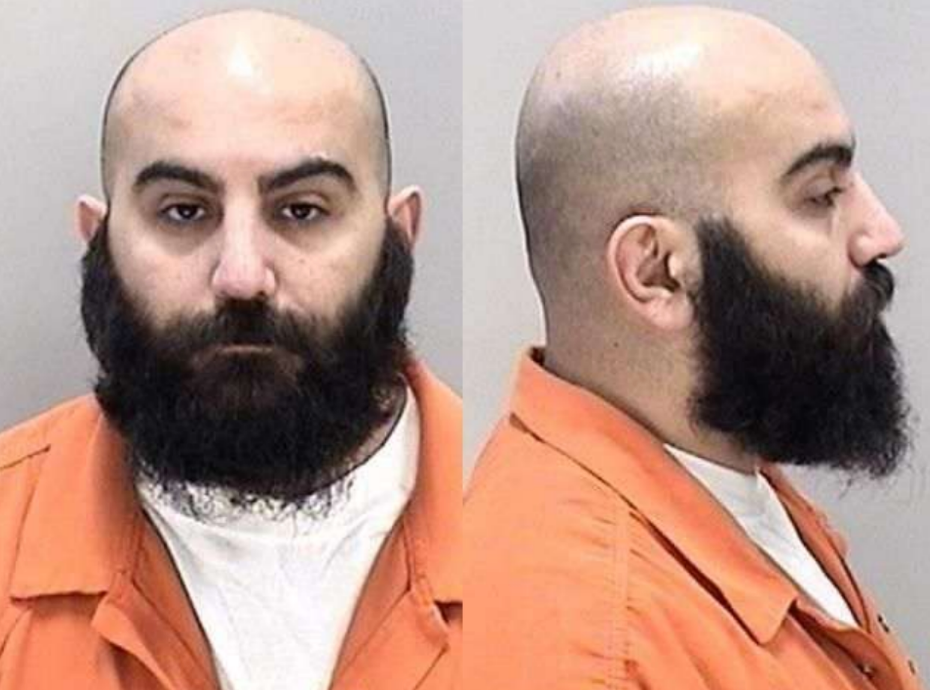Newly uncovered court documents reveal a disturbing pattern of psychological instability, firearm access, and court-ordered domestic violence counseling in the months leading up to the murder of Melissa Cui Domingo and her mother, Elizabeth Cui Domingo.
The alleged shooter – Melissa’s ex-husband, Hajir Talebzadeh – was no stranger to the courts, and new evidence suggests warning signs were present long before Sunday’s deadly shooting in a Best Buy parking lot.
Talebzadeh, 37, was known to the legal system as both a victim and a perpetrator of violence. He was ordered to undergo domestic violence intervention after a turbulent custody battle that spanned nearly two years. Medical evaluations noted his diagnosis of post-traumatic stress disorder (PTSD) and a traumatic brain injury. They were complications stemming in part from his military service, but ones that raised significant concerns about emotional regulation and risk.
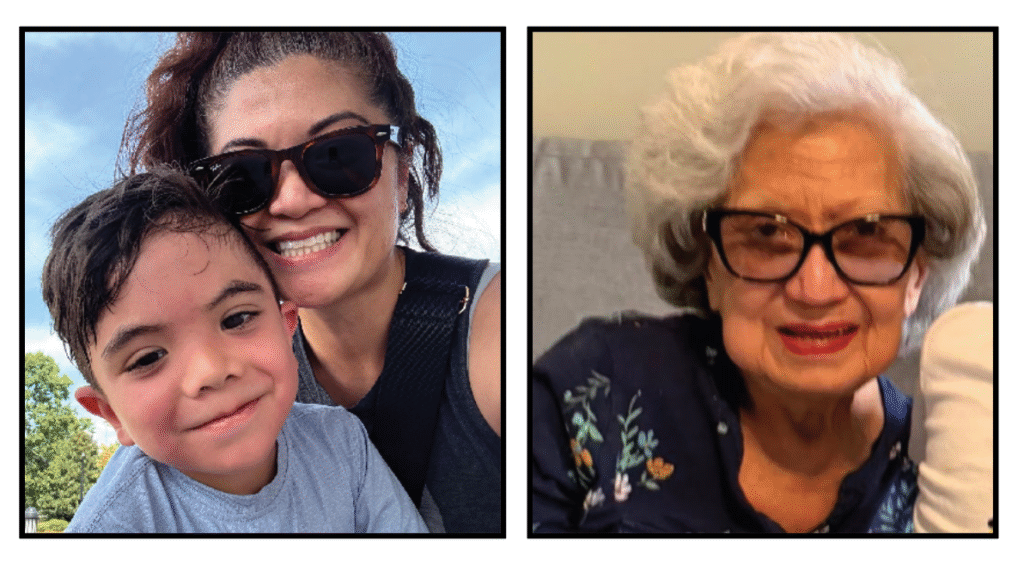
The court had also expressed worry about the presence of unsecured firearms in Talebzadeh’s home, with Juvenile Court Judge Kelli Spencer saying in 2023 that “each parent should be required to properly secure all weapons in their possession to ensure that the child does not have access to them.”
Melissa had herself survived a violent shooting incident in 2021 involving Talebzadeh. In that case, she shot him multiple times, later citing years of emotional and physical abuse. A judge agreed with her account and granted her immunity under Georgia’s self-defense laws.
Yet just weeks after that legal victory, she and her elderly mother were dead, gunned down in front of her five-year-old son during what should have been a routine custody exchange.
A Final Judgment Outside the Courtroom. The shooting occurred on Sunday evening in a west Augusta parking lot, where Melissa and her mother had arrived to meet Talebzadeh and transfer custody of the child. Instead, investigators say, Talebzadeh opened fire, killing both women as his son looked on. Deputies found the boy covered in blood.
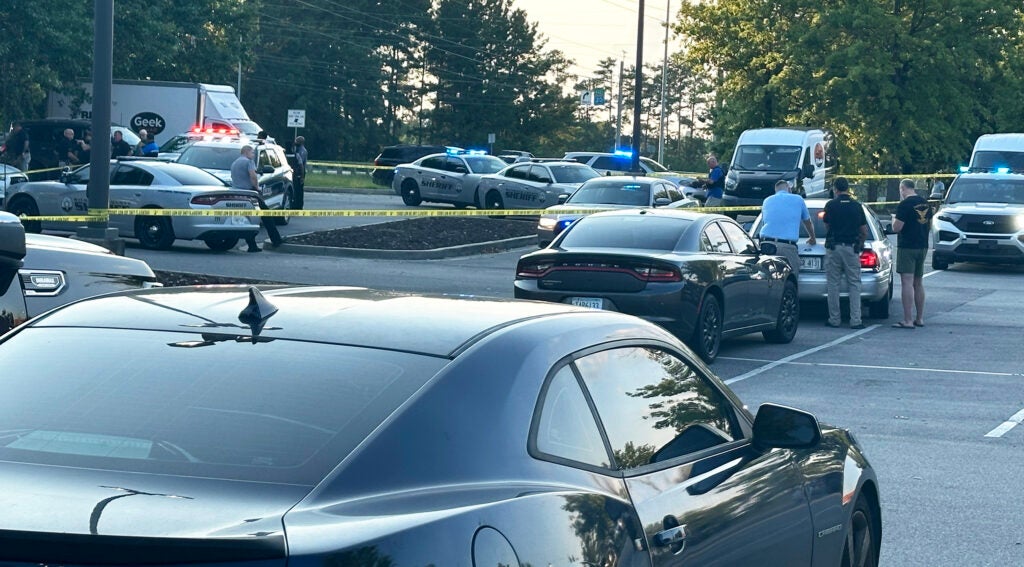
Witnesses called 911 just after 5 p.m. Police arrived to find Melissa, 32, and Elizabeth, 74, dead at the scene. Talebzadeh had sustained non-life-threatening injuries and was taken into custody. Charges are pending.
The child, traumatized but physically unharmed, is now in the care of the Georgia Division of Family and Children Services (DFCS).
A Custody Exchange Gone Wrong – Again! According to court documents, the Best Buy parking lot along Robert C. Daniel Parkway had long served as the court-approved location for custody exchanges between Melissa and Talebzadeh. The location was chosen for its public visibility and was meant to minimize risk and conflict, according to an order by Superior Court Judge Daniel Craig.
But it hadn’t always worked.
In at least one prior exchange at that same Best Buy, Talebzadeh reportedly acted aggressively toward Melissa’s mother, Elizabeth, who had accompanied her daughter for the handoff. The incident was serious enough to be noted in court filings, prompting Judge Craig to impose stricter protocols on how future exchanges should unfold.

A later court order by Judge Craig specified that both parents were to remain in their vehicles, with no verbal communication allowed. The handoff of the child was to occur vehicle-to-vehicle or with law enforcement present if necessary.
Yet on the day of the fatal shooting, those precautions either failed or were ignored. All three adults were reportedly out of their cars, and within moments, Melissa and Elizabeth were dead, shot in front of the five-year-old boy they were there to protect.
A History of Violence, Diagnosed and Documented. Recent family court findings paint a disturbing picture of Talebzadeh’s mental state. In evaluations ordered during the 2022–2023 custody dispute, doctors noted signs of severe emotional dysregulation and untreated trauma. PTSD and traumatic brain injury were among the formal diagnoses. Domestic violence counseling and trauma-focused therapy were among the recommended treatments.
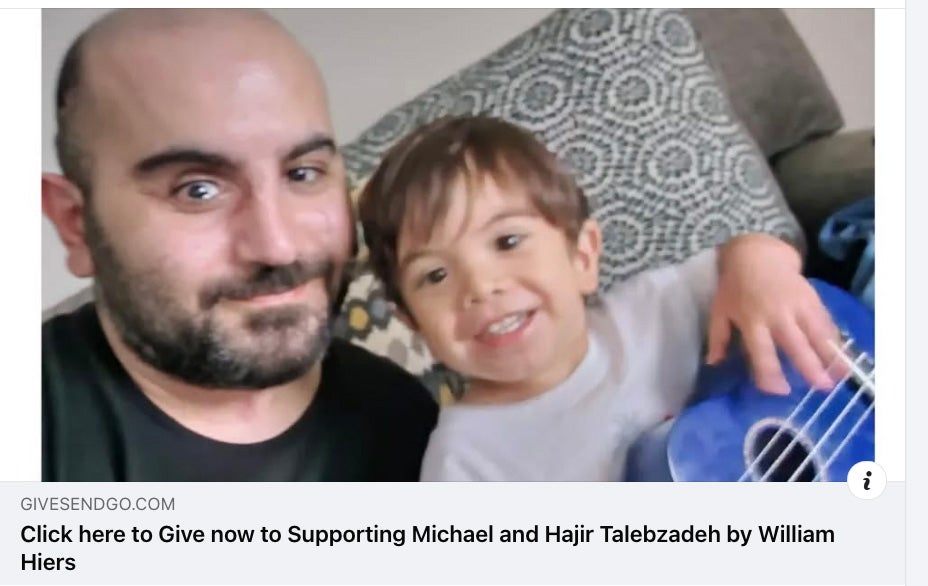
He was also flagged for having unsecured firearms in the home, something confirmed by law enforcement, who testified that guns were easily accessible to the child.
Despite this, Talebzadeh was granted primary physical custody in December 2023, in part due to concerns over Melissa’s pending criminal charges at the time and the court’s conclusion that his home appeared more stable.
Melissa’s Fight for Freedom and Her Life. Melissa’s path through the legal system began long before the custody fight. In 2021, she shot Talebzadeh during what she described as a final, terrifying act in a years-long cycle of abuse. According to her testimony, he once shoved her head into a toilet and fired a gun at her, missing only by chance.
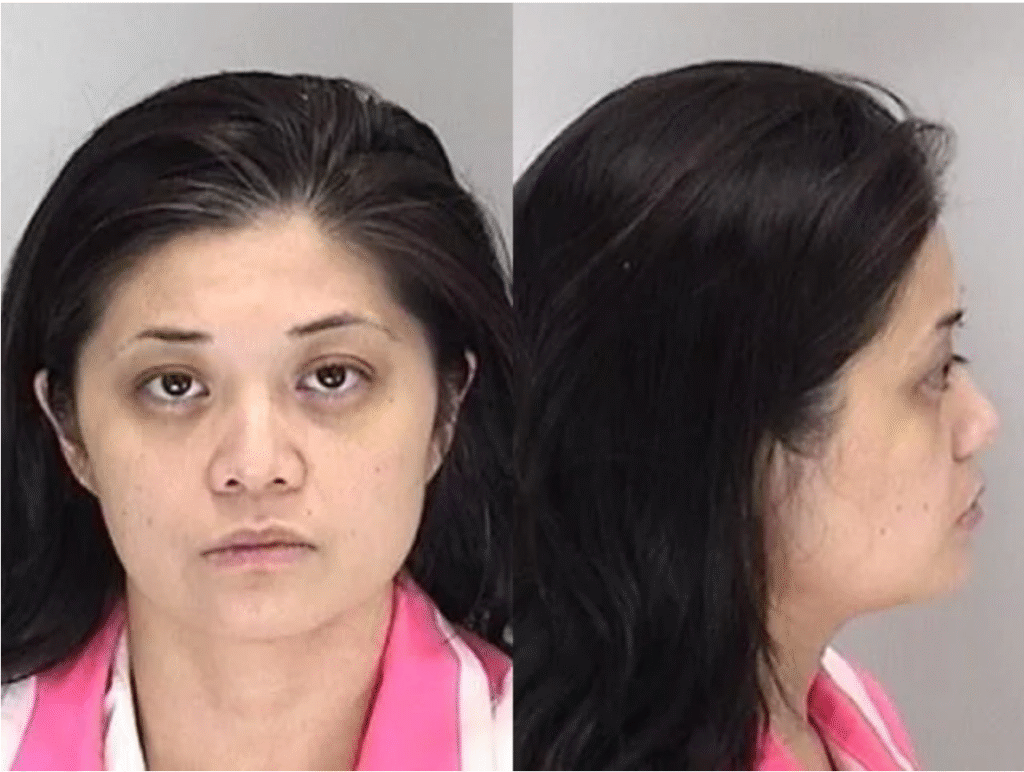
She was later diagnosed with PTSD, Battered Person Syndrome, panic disorder, and Stockholm Syndrome. After months of legal proceedings, a judge found her actions were justified and granted her immunity under state law.
Court records reveal a deep fear for her safety even after the legal victory. Though cleared of criminal charges, she remained locked in a custody battle with a man she feared deeply.
Custody Chaos and a Broken Courtroom. Between July 2022 and December 2023, the juvenile court held nearly a dozen hearings over the child’s custody. Both parents accused each other of abuse, manipulation, stalking, and digital harassment.
The judge’s final order acknowledged that neither parent was ideal. In fact, the court noted that “if it were possible to award custody to a third party, that is exactly what this Court would recommend.” But with no third-party guardian available, custody went to Talebzadeh. Melissa was granted only supervised visitation, with restrictions on communication.
Both parties were required to participate in mental health treatment and co-parenting counseling. But the animosity never subsided.
Court-mandated evaluations recommended 19 therapy modules for Melissa, including assertiveness training and trauma processing. The same documents indicated that she had made significant progress, but feared for her life with every custody exchange.
Financial Power Plays and Custody as Leverage. Court records show that both Melissa and Talebzadeh were financially stable on paper, but their ongoing conflict over child support and control suggested otherwise.
Melissa, a licensed dental hygienist, told the court she was able to pay her rent and bills without assistance, sharing a modest two-bedroom apartment with her mother. She testified that the child had their own room, while she slept on the living room couch.
Talebzadeh, meanwhile, claimed far greater income. Working as a linguist with NSA clearance and also engaging in high-yield day trading, he once testified to making as much as $20,000 in a single day from investments. He lived in a single-family home with the child and his mother and was able to provide a private bedroom and stable housing.
But stability on paper didn’t translate to peace. The pair frequently clashed over money, particularly related to child support and custody arrangements. Each accused the other of manipulating the system — Melissa alleging Talebzadeh withheld financial information and sabotaged her legal standing, while Talebzadeh insisted she was seeking full custody for monetary gain.
In one hearing, the court noted that both parents seemed more focused on “winning” than co-parenting. Despite both being deemed fit to parent, the judge expressed concern that financial disputes were fueling emotional warfare — with their child caught in the middle.
A Child Left Behind. The couple’s five-year-old son witnessed the fatal shooting and is now in protective custody. Officials have not yet determined who will take over permanent guardianship.
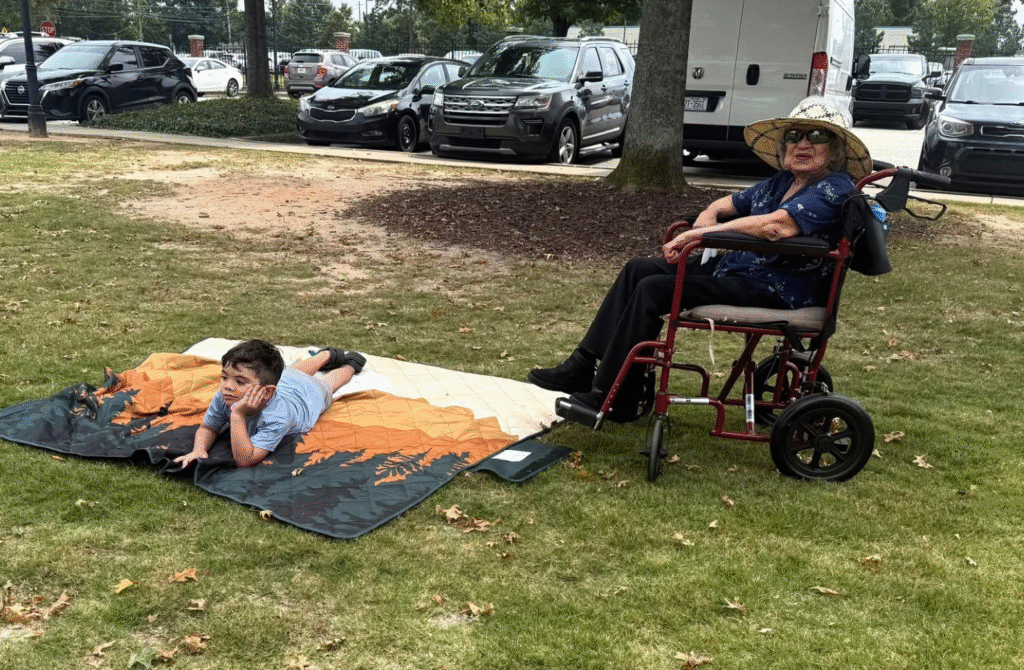
“This child has lost both parents in the most horrific way,” said Sheriff Gino Brantley. “No amount of legal process can undo that trauma.”
The Georgia Bureau of Investigation is assisting the Richmond County Sheriff’s Office with the ongoing case. Talebzadeh will be transferred to the Charles B. Webster Detention Center following medical clearance.
A Community Searches for Accountability. As Augusta reels from the tragedy, questions mount. Could the killings have been prevented? Did the court place too much emphasis on procedural neutrality and not enough on long-term safety? And why, in a case with so many psychological red flags, was a custody handoff allowed to take place without direct supervision?
TIMELINE SUMMARY OF COURT DOCUMENTS: DOMINGO-TALEBZADEH CASE
Pre-2021: Relationship Background
- Melissa Cui Domingo and Hajir Talebzadeh were in a relationship and had a son together.
- Over time, the relationship became marked by alleged emotional and physical abuse, as documented later in court proceedings.
Early 2021: Abuse and Shooting Incident
- Melissa reported a violent history with Hajir, including:
- Having her head shoved into a toilet.
- A gun being fired at her and missing “only by chance.”
- In a confrontation in 2021, Melissa shot Hajir multiple times during a domestic dispute.
- She later claimed self-defense due to years of abuse.
Mid–Late 2021: Criminal Investigation and Immunity
- Melissa was charged initially, but after legal proceedings, a judge granted her immunity under Georgia’s self-defense laws.
- She was diagnosed with:
- PTSD
- Battered Person Syndrome
- Panic Disorder
- Stockholm Syndrome
July 2022: Custody Case Opens in Juvenile Court
- Custody battle began over their son, then around 3 years old.
- Court hearings would stretch over the next 18 months.
2022: Custody Issues and Initial Evaluations
- Melissa and Hajir were locked in a bitter legal fight. Allegations included:
- Abuse
- Manipulation
- Stalking
- Digital harassment
- Mental health and parenting evaluations ordered for both.
- Melissa was recommended 19 modules of therapy including assertiveness training and trauma processing.
- Hajir was diagnosed with PTSD and traumatic brain injury, partly linked to his military service.
- He was also ordered into domestic violence intervention counseling.
Early–Mid 2023: Red Flags Raised
- Evaluations raised concerns about Hajir’s emotional regulation and access to firearms.
- Law enforcement confirmed unsecured guns were accessible to the child.
- Court flagged concerns about safety during custody exchanges.
2023: Best Buy Handoff Problems
- Best Buy on Robert C. Daniel Parkway was the court-approved custody exchange location.
- It was selected for public visibility and safety.
- In a documented incident, Hajir acted aggressively toward Melissa’s mother, Elizabeth Cui Domingo, during a handoff.
- As a result, the judge issued stricter orders:
- Both parents must remain in vehicles
- No verbal communication
- Exchanges to be vehicle-to-vehicle or with law enforcement present
Late 2023: Custody Ruling
- December 2023: Court awards primary physical custody to Hajir.
- Justification included:
- Melissa’s recent legal history
- Appearance of stability at Hajir’s home
- Justification included:
- Melissa received supervised visitation only.
- The judge admitted neither parent was ideal:
“If it were possible to award custody to a third party, that is exactly what this Court would recommend.”
Ongoing: Financial Conflict
- Melissa: Dental hygienist, modest income, lived in 2-bedroom apartment with her mother.
- Son had his own room; she slept on the couch.
- Hajir: Linguist with NSA clearance, day trader claiming earnings up to $20,000 in one day.
- Lived in single-family home with his mother and the child.
- Court noted financial disputes were fueling emotional warfare.
- Each accused the other of using custody as leverage for financial gain.
March 2024: Tensions Remain High
- Melissa continued to express fear for her life, especially during custody exchanges.
- Despite court orders and counseling, conflict persisted.
September 2024: Final Custody Exchange Turns Deadly
- Sunday evening, Best Buy parking lot.
- Melissa and her mother Elizabeth arrived for routine custody handoff.
- All three adults were outside their vehicles — in violation of court orders.
- Hajir allegedly opened fire, killing Melissa and Elizabeth in front of the child.
- Boy found covered in blood, but physically unharmed.
- Hajir sustained non-life-threatening injuries and was arrested at the scene.
Current Status
- The child is in the custody of Georgia DFCS.
- Hajir is in law enforcement custody, charges pending.
- Investigations are ongoing by Richmond County Sheriff’s Office and the Georgia Bureau of Investigation.

